Marcia Sirota's Blog, page 10
December 29, 2021
Hope For 2022: Move Past Your Trauma by Becoming a Kindness Warrior
As the New Year approaches, most of us are relieved to be saying good-bye to 2021. It hasn’t been a great year. Although better than 2020, to be sure, what we’d hope for—an end to the pandemic and a return to life as we knew it—didn’t materialize this year, and that was a huge disappointment.
There have been some amazing scientific breakthroughs, with the development of effective vaccines against COVID-19, and the recent approval of a new anti-viral pill to take at the early stages of infection, that could prevent more serious illness and hospitalization.
We haven’t had to go back into lockdown in most parts of the world, and many of us were able to give our loved ones a hug for the first time in over a year.
On the other hand, we’re in yet another wave. Omicron is enormously contagious and all of a sudden, I know all sorts of people who’ve tested positive for COVID-19. Fortunately, all of them have two or three shots of the vaccine and so far, no-one has gotten seriously ill. Still, it’s a bit chilling.
This is one of the toughest starts to a New Year in recent history, and the impact on our mental health can’t be underestimated. People are exhausted, demoralized, frustrated, and fed up. A lot of people are furious and are taking it out on each-other, when what’s really going on is that they’re full of fear, which often masquerades as rage.
Counselors and therapists are in short supply as everyone is working overtime, trying to cope with rates of anxiety, depression, and addiction that are through the roof. Health care workers are quitting in droves due to extreme burnout from having no respite for almost two years. Children are dealing with mental health crises like never before.
 Photographer: Tim Mossholder | Source: UnsplashResolutions or hope for the future?
Photographer: Tim Mossholder | Source: UnsplashResolutions or hope for the future?In the good old days, we would enter the New Year armed with serious resolutions—to lose weight, to eat better, to exercise regularly, to get that promotion, or to finish the novel we’ve been procrastinating over.
As we move into 2022, I’m not sure if we have resolutions as much as hopes for a better year to come. Hope is an important emotion, as it keeps us going when things are hard. Fortunately, there’s reason for hope. Scientists are saying that COVID-19 can’t mutate indefinitely, and although Omicron is vastly more contagious than previous strains, it might just be the last one. Let’s hope.
I’m hoping that in 2022, people can start being kinder, both to themselves and to each-other. We’ve all had plenty of alone time in which to contemplate our existence, and I’m hoping that all this time to think has enabled us to develop more self-compassion. We can recognize the mistakes we’ve made in the past year, and we can choose to learn from them instead of using them as an excuse to beat ourselves up.
The past two years have demonstrated increasing political polarization as well as the stark divisions between those who are for and against the COVID-19 vaccine. I’m hoping that in 2022 we can be more tolerant and understanding toward one-another and if we can’t agree, then we can agree to disagree more respectfully and peacefully.
 Source: Pexels.comOur anger is all about our trauma
Source: Pexels.comOur anger is all about our traumaI’m hoping that people recognize that the anger they’re feeling shouldn’t be directed toward those with different points of view. All that anger is really just a symptom of the trauma we share. Everyone is hurting right now. We might have different beliefs and we might make different choices, but what we share is our common humanity.
We all want to be happy and safe; we want to live in peace with freedom, health, love, and enough money that we don’t need to worry. We all rejoice when things go well and we all suffer when we experience loss, fear, and uncertainty; when we’re isolated and we feel helpless. I hope that in 2022, we can recognize how much we have in common and we can join together to support one-another.
Everyone thrives when we cooperate; when we recognize our interdependence and build stronger communities. Some politicians and speakers promote selfishness and an us-and-them mentality, but that leads to suffering for everyone.
We all need each-other. The welfare of our families, our communities, and our planet depends on us working together in harmony. I’m hoping that in 2022, we stop being so insular, judgmental, and accusatory. I’m hoping that we can look for what unites us, rather than playing the blame game. I’m hoping that we can come together rather than creating even deeper rifts.
 Source: Pexels.comChoosing to be a kindness warrior
Source: Pexels.comChoosing to be a kindness warriorIn 2022, I hope that more of us decide to become kindness warriors—by this, I mean people who choose to always be kind, even when life is sometimes unkind. Being a kindness warrior has nothing to do with being a people-pleaser. It’s not about trying too hard to be nice. Rather, it’s choosing to be compassionate yet ruthless; always caring about each-other but never tolerating disrespect.
My concept of Ruthless Compassion supports us in becoming kindness warriors. It enables us to set healthy boundaries and limits; to stand up for ourselves and for those who don’t have a voice. It empowers us to be generous and altruistic without ever being a doormat, and it encourages us to say “yes” to love and acceptance and “no” to aggression and hatred.
I’m hoping that 2022 is the year of the kindness warrior. I invite you all to join in. Keep checking out my content for upcoming blogs, podcasts, videos, and interviews about how everyone can become a kindness warrior in the coming year.
______
Sign up here for my free biweekly wellness newsletter that brings you fresh, thought-provoking content.
Subscribe to my YouTube Channel where you’ll learn simple tips for taking the best care of yourself and your loved ones.
Tune in to my Ruthless Compassion Podcast where I go in-depth about topics like mental health, trauma, and loneliness.
if(window.strchfSettings === undefined) window.strchfSettings = {};window.strchfSettings.stats = {url: "https://marciasirotamd.storychief.io/... "Hope For 2022: Move Past Your Trauma by Becoming a Kindness Warrior",id: "84fb0907-fb13-4676-8158-d29510e9b589"};(function(d, s, id) {var js, sjs = d.getElementsByTagName(s)[0];if (d.getElementById(id)) {window.strchf.update(); return;}js = d.createElement(s); js.id = id;js.src = "https://d37oebn0w9ir6a.cloudfront.net... = true;sjs.parentNode.insertBefore(js, sjs);}(document, 'script', 'storychief-jssdk'))
The post Hope For 2022: Move Past Your Trauma by Becoming a Kindness Warrior appeared first on Marcia Sirota.
December 22, 2021
Why the Bachelor Producers Got it Wrong in Choosing Clayton
The new Bachelor has been announced. His name is Clayton and I’m not the only one disappointed by the choice. In fact, on the After the Final Rose show for Bachelorette, Michelle, the host—Kaytlin—sat Clayton down and read aloud some of the tweets showing how people were feeling about him.
I’m sure the intention was to do something like they do on the late-night TV shows, in which the subject of the nasty tweets gets a chance to make a witty rebuff to the insult, showing both how clever they are and what a good sport, too. Unfortunately, in Clayton’s case, the bit only made things worse.
The tweets were surprisingly vicious—indicating a little too obviously how unhappy people were with Clayton as the new choice for the Bachelor. As each one came up on the screen, Clayton had nothing to say, other than at the end admitting that they were mild, compared to some of the tweets he’d seen. Ouch.
He blew the opportunity to show how funny, charming and self-deprecating he could be; to show how he was in on the joke. Instead, his lack of response just cemented America’s impression that he’s not that interesting. As is often the case with this franchise, the producers had a bad idea, and it backfired.
 Photographer: Steven Lelham | Source: UnsplashHe didn’t earn his spot
Photographer: Steven Lelham | Source: UnsplashHe didn’t earn his spotWhy are so many people unhappy with Clayton as the choice for the new Bachelor? There are a few reasons. Clayton wasn’t in the top four, which is where most of the recent Bachelors have come from. He wasn’t even in the top six. He didn’t earn the privilege of being the next Bachelor and the audience is unhappy about the unfairness of the situation.
And then there’s who Clayton is. He seems like a nice enough guy, but the choice of another dull, hunky white guy from the Midwest feels really retrogressive. The producers have back-slid big-time.
The top four of Michelle’s season happened to be four men of colour, and if the producers had been forward-thinking, they would have chosen Rodney or Brandon as the next Bachelor; even Olu, who was delightful and in the top six. Instead, they selected someone as lily-white and inoffensive as possible, but by choosing the seemingly least offensive candidate, the producers have caused maximum offense. No wonder Bachelor Nation is up in arms.
The Bachelor franchise has been mired in controversy lately, but the producers have made yet another bad decision by choosing a new Bachelor who bothers the viewer for so many reasons. He’s not from the top four; he’s another big blah white guy; he’s no rocket scientist, and he’s got no edge. I, for one, won’t be watching the next season of the show. No offense to the guy, but I can’t see myself getting invested in Clayton’s story.
 Source: Pexels.comThe Bachelor producers aren’t serious about diversity
Source: Pexels.comThe Bachelor producers aren’t serious about diversityThe producers demonstrated, in picking Clayton, that they weren’t serious about their promise to embrace diversity in the franchise. They should have chosen one of the several interesting and attractive men of colour who were part of the final six for the new Bachelor but they copped out, and they got it dead wrong.
Bachelor Nation got it right when they panned Clayton as the choice for the new Bachelor. Unfortunately, it’s too late to change as the season has already been filmed. There is so much other great stuff on TV these days that I won’t feel bad missing the upcoming season of the Bachelor.
As a psychiatrist, it can be interesting to observe the interpersonal dynamics between the contestants—but sometimes it’s too toxic and I just fast-forward through those scenes. It’s always intriguing to watch how the star decides who to keep around and who to send home each week.
I also enjoy exploring how the premise of setting up multiple suitors for one person creates an immediate, false idealization of the Bachelor/Bachelorette that leads to instant infatuations but just as quickly breaks down, often leading to broken engagements after the show is over. This is great fodder for my blogging.
 Source: Pexels.comThe star should be relatable, not bland and forgettable
Source: Pexels.comThe star should be relatable, not bland and forgettableThe most important aspect of the franchise is that the star be relatable—someone that people can root for; be infatuated with; identify with. Unfortunately, in choosing Clayton, the producers found someone that most of Bachelor Nation can do none of these things with. He is so bland that he risks being utterly unmemorable.
As I said before, Clayton seems like a perfectly nice man, but he’s not the right choice for the Bachelor in this day and age. If they had chosen Rodney, a tremendously charming but non-traditionally attractive person of colour, this article would be celebrating the brilliance of the Bachelor producers. Instead, it’s the same-old, same-old. So disappointing.
 Source: Pexels.comHow many fans will be choosing not to watch this season?
Source: Pexels.comHow many fans will be choosing not to watch this season?I wonder how many other viewers will be passing on this season of the Bachelor. Maybe viewers will be staying away in droves. That would hit the producers where it matters most to them—in their wallets, and maybe boycotting the show is the only way to get the producers motivated to make better choices, moving forward.
______
Sign up here for my free biweekly wellness newsletter that brings you fresh, thought-provoking content.
Subscribe to my YouTube Channel where you’ll learn simple tips for taking the best care of yourself and your loved ones.
Tune in to my Ruthless Compassion Podcast where I go in-depth about topics like mental health, trauma, and loneliness.
if(window.strchfSettings === undefined) window.strchfSettings = {};window.strchfSettings.stats = {url: "https://marciasirotamd.storychief.io/... "Why the Bachelor Producers Got it Wrong in Choosing Clayton",id: "84fb0907-fb13-4676-8158-d29510e9b589"};(function(d, s, id) {var js, sjs = d.getElementsByTagName(s)[0];if (d.getElementById(id)) {window.strchf.update(); return;}js = d.createElement(s); js.id = id;js.src = "https://d37oebn0w9ir6a.cloudfront.net... = true;sjs.parentNode.insertBefore(js, sjs);}(document, 'script', 'storychief-jssdk'))
The post Why the Bachelor Producers Got it Wrong in Choosing Clayton appeared first on Marcia Sirota.
December 20, 2021
Miranda’s Drinking in SATC Reboot And Just Like That Gives Us an Opportunity to Honestly Address Addiction
I’ve been enjoying watching And Just Like That, the latest iteration of the Sex and the City franchise. There’s a lot to think about with this new show, including its fresh—and much-needed—take on gender and race, as well as what it means to be a middle-aged woman trying to live her best life in our misogynistic, ageist society. One of the themes they’ve brought up is Miranda’s alcohol addiction.
In the first episode, we see her going into a bar at 10:45 in the morning, looking for fortification prior to starting her new class in human rights law. In episode two, we see her demanding a stiff drink, just before the funeral of Carrie’s late husband, and in episode three, Charlotte finds three small empty bottles of liquor tucked away in Miranda’s backpack.
 Source: Pexels.comSometimes, our loved ones are equally in denial
Source: Pexels.comSometimes, our loved ones are equally in denialInterestingly, when Charlotte brings it up to Carrie, it’s brushed off with “we all have good reason to drink, these days,” and essentially, Carrie asks Charlotte to disregard it. This can be excused because Carrie is clearly out of her mind with grief, but it makes me wonder how Miranda’s drinking will be handled in subsequent episodes.
Miranda is in a midlife transition. She has ditched corporate law and she wants to do something more meaningful. Her marriage has been sexless for years and she wonders if she and her husband are merely roommates who share a child and a dessert ritual.
I think that the show is providing some very realistic context for why the character of Miranda might be drinking, these days. It’s not uncommon for people to turn to self-medicating with alcohol when we’re unhappy but it’s too threatening to examine the source of our unhappiness.
 Source: Pexels.comFacing the source of our unhappiness can be excruciatingly difficult
Source: Pexels.comFacing the source of our unhappiness can be excruciatingly difficultMiranda seems to have developed a crush on Che Diaz, Carrie’s podcast boss, and a non-binary person. Is Miranda struggling with her sexuality? Quite possibly. The expression on her face after Che shot-gunned some pot smoke into her mouth was a priceless look of exquisite discomfort. It looked like she didn’t want to acknowledge what she was feeling—or desiring—at that moment.
Why do we turn to addiction? We use it to shove down feelings, urges, and memories that we consider intolerable. We use it to numb our trauma, minimize our anxiety, or block out our awareness of desires that are too uncomfortable for us to face.
Miranda is unhappy with her life. She has questions about what she wants to do with her time and who she wants to be intimate with. She drinks, it seems, to avoid facing some of these awkward truths.
 Source: Pexels.comIt’s super-hard to leave even an amicable bad marriage
Source: Pexels.comIt’s super-hard to leave even an amicable bad marriageIt’s incredibly hard to leave a long marriage—even when it’s an abusive one, and Miranda’s is definitely not one of those. We, humans, are creatures of habit, and extricating ourselves from a life we’ve been living for decades is incredibly challenging. Miranda’s husband is a good guy. They don’t fight. He’s going deaf and she feels bad for him. All that makes it even more difficult for her to contemplate a change. And their son is still living at home, exploring his own love life. She doesn’t want to abandon him, either.
We drink because we want to bury our discomfort and distract ourselves from the truth, but then we add a new problem to the mix—alcohol misuse. We end up experiencing consequences for our drinking behaviour in our personal lives, at school, and at work. I’m anticipating some of these consequences for Miranda in the next few episodes.
 Source: Pexels.comWe should never judge someone for being an addict
Source: Pexels.comWe should never judge someone for being an addictIt's easy to judge someone who has an obvious addiction, whether to alcohol, drugs, or overeating, but so many of us have addictions that we simply keep secret—even from ourselves. I was speaking to life coach and “hope evangelist,” Kathryn Greenberg in my Ruthless Compassion podcast the other day, and we were talking about how a lot of people have addictions that are less obvious.
Some of us are workaholics; others exercise to excess. Some of us are shopaholics and others spend hours each day gaming. Some addictions are socially acceptable—even idealized—like over-working and over-exercising, whereas some addictions are frowned upon, like drug use and alcoholism.
Alcoholism is an interesting case, because many of us are like Carrie, denying the warning signs in our loved ones, preferring to think that their drinking behaviour hasn’t actually become problematic.
I’m interested to see how And Just Like That handles Miranda’s drinking as the show progresses. I’m hoping that it uses the platform to open up an honest discussion about the role of addiction in our lives.
Unhappiness can hit us at any point, but it’s how we deal with it that matters. No-one should be ashamed that they’ve turned to addiction as a solution, but it’s not something we should ignore, either.
For anyone who’s grappling with alcohol misuse or any other addiction, for that matter, there’s a lot of help available, and it starts with facing our feelings. Behavioural change such as forced abstinence won’t work because it doesn’t address the root cause of our addictions. We need to get to the bottom of our dysfunctional behaviour and discover—and then heal—whatever pain it is that we’re using our addiction to deal with.
 Source: Pexels.comWe needn’t be ashamed of our addictions
Source: Pexels.comWe needn’t be ashamed of our addictionsThere’s no reason to be ashamed of our addictions—in fact, the shame perpetuates the behaviour because it makes it that much harder to recognize what we’re doing. When we can look at ourselves with compassion—ruthless compassion—we can face the truth about our addictions without self-criticism and we can let our self-love, and our desire for a better way of coping, motivate us to make the necessary changes.
Of course, overcoming any addiction isn’t easy, because there’s a physiological component involved. The brain chemical, Dopamine, is stimulated by any addictive behaviour, and then it intensifies our cravings. We will need help from trained professionals to successfully address the emotional and physical components of our addiction. There’s no shame in that, either. Everyone deserves a chance to heal.
______
Sign up here for my free biweekly wellness newsletter that brings you fresh, thought-provoking content.
Subscribe to my YouTube Channel where you’ll learn simple tips for taking the best care of yourself and your loved ones.
Tune in to my Ruthless Compassion Podcast where I go in-depth about topics like mental health, trauma, and loneliness.
if(window.strchfSettings === undefined) window.strchfSettings = {};window.strchfSettings.stats = {url: "https://marciasirotamd.storychief.io/... "Miranda’s Drinking in SATC Reboot And Just Like That Gives Us an Opportunity to Honestly Address Addiction",id: "84fb0907-fb13-4676-8158-d29510e9b589"};(function(d, s, id) {var js, sjs = d.getElementsByTagName(s)[0];if (d.getElementById(id)) {window.strchf.update(); return;}js = d.createElement(s); js.id = id;js.src = "https://d37oebn0w9ir6a.cloudfront.net... = true;sjs.parentNode.insertBefore(js, sjs);}(document, 'script', 'storychief-jssdk'))
The post Miranda’s Drinking in SATC Reboot And Just Like That Gives Us an Opportunity to Honestly Address Addiction appeared first on Marcia Sirota.
December 14, 2021
The Psychology of Apathy, and Why it’s So Dangerous in a Pandemic
But that’s the thing about apathy. It’s a state of indifference, regardless of what’s going on, and aside from procrastinating on blogging, it can lead to some rather unpleasant consequences.
While it’s not good to worry too much about everything, it’s equally problematic to care about nothing. Apathy is not a healthy alternative to being neurotic.
 Source: Pexels.comWhat makes us apathetic?
Source: Pexels.comWhat makes us apathetic?Why do we become apathetic? Often, it happens when we’ve been hit with painful emotions so overwhelming that we completely shut down. Pain, hurt, and loss can be devastating and sometimes we feel like we can’t bear it, so we go numb. We stop caring about anything. It can be a form of depression.
And now, with the COVID-19 pandemic, the whole planet is in a state of emotional devastation. What with the sickness, the deaths, the loss of jobs, the over-work and burn-out, the restrictions, the isolation, the loss of control, the not knowing, the polarization, the confusion, the arguments… it’s overwhelming.
 Source: Pexels.comBeyond COVID fatigue, into COVID apathy
Source: Pexels.comBeyond COVID fatigue, into COVID apathyAnd as we enter the fifth wave with the new Omicron variant, I’m noticing that many people are freaking out, but equally, a lot of people have become pretty darn apathetic about the whole thing. This latter group seems to have passed beyond COVID fatigue into COVID apathy, and they no longer care about whether or not they catch COVID. They don’t care about whether they give it to someone else.
I see them walking around the grocery store with their mask slung around their chin. I see them making plans to attend large gatherings in the coming days and weeks, or booking holidays away when studies show that two doses of the vaccine don’t give enough protection against the Omicron variant.
 Source: Pexels.comThis is the time to care more, not less
Source: Pexels.comThis is the time to care more, not lessIt’s understandable that these people are feeling apathetic. Being distressed and overwhelmed—and especially being traumatized by unrelenting stress—can lead to shutting down of our emotions. The problem is that this is the time to be more vigilant than ever—not more blasé.
Our health-care system is on the verge of collapse. Health-care workers are quitting in droves. The ones who remain are burnt-out, exhausted, and frankly, they might not last much longer. Who will care for the sick when hospitals are operating with a skeleton staff?
With all the closures and the focus on COVID, cancers have not been detected over the past two years—so much so that people are coming in with terminal disease at the time of their diagnosis—something that oncologists haven’t seen in their entire careers.
Of course, the longer the pandemic rages, the worse it will be for the economy. Food prices are sky-rocketing and between job losses and supply chain issues causing price hikes, more and more people are turning to food banks to feed themselves and their families—almost double the pre-pandemic numbers.
Mental health is in a crisis of epic proportions, with out-of-control rates of mood disorders, substance abuse, suicide, and spousal and child abuse. Children, teens, and young adults are struggling to cope and mental health professionals are overwhelmed by the demand. The longer the pandemic goes on, the more our mental health deteriorates, and one of the symptoms of a mental health problem is inappropriate apathy—not caring at all when we need to care a lot.
 Source: Pexels.comApathy creates a dangerous domino effect
Source: Pexels.comApathy creates a dangerous domino effectOur apathy is dangerous, as it creates a domino effect. Every action we take—or lack of action—affects something else, and things can go from bad to worse, very quickly. As the pandemic persists, our apathy can cause the infection rate to spike, resulting in our lives becoming more and more difficult.
We need to break out of this state of apathy and see that our actions have wide-ranging repercussions. As upset and overwhelmed as we are, this is the time for us to care more, not less. Our actual survival depends on it.
If you’re feeling so apathetic these days that you intend to carry on as though life were back to normal, and if conversations with your friends and family haven’t helped you to care more, then it might be a good idea to speak with a mental health professional. You might be a little bit depressed, and therapy and/or medications could be just the thing you need, right now.
______
Sign up here for my free biweekly wellness newsletter that brings you fresh, thought-provoking content.
Subscribe to my YouTube Channel where you’ll learn simple tips for taking the best care of yourself and your loved ones.
Tune in to my Ruthless Compassion Podcast where I go in-depth about topics like mental health, trauma, and loneliness.
if(window.strchfSettings === undefined) window.strchfSettings = {};window.strchfSettings.stats = {url: "https://marciasirotamd.storychief.io/... "The Psychology of Apathy, and Why it’s So Dangerous in a Pandemic",id: "84fb0907-fb13-4676-8158-d29510e9b589"};(function(d, s, id) {var js, sjs = d.getElementsByTagName(s)[0];if (d.getElementById(id)) {window.strchf.update(); return;}js = d.createElement(s); js.id = id;js.src = "https://d37oebn0w9ir6a.cloudfront.net... = true;sjs.parentNode.insertBefore(js, sjs);}(document, 'script', 'storychief-jssdk'))
The post The Psychology of Apathy, and Why it’s So Dangerous in a Pandemic appeared first on Marcia Sirota.
The Psychology of Apathy, and Why it’s So Dangerous
But that’s the thing about apathy. It’s a state of indifference, regardless of what’s going on, and aside from procrastinating on blogging, it can lead to some rather unpleasant consequences.
While it’s not good to worry too much about everything, it’s equally problematic to care about nothing. Apathy is not a healthy alternative to being neurotic.
 Source: Pexels.comWhat makes us apathetic?
Source: Pexels.comWhat makes us apathetic?Why do we become apathetic? Often, it happens when we’ve been hit with painful emotions so overwhelming that we completely shut down. Pain, hurt, and loss can be devastating and sometimes we feel like we can’t bear it, so we go numb. We stop caring about anything. It can be a form of depression.
And now, the whole planet is in a state of emotional devastation. What with the sickness, the deaths, the loss of jobs, the over-work and burn-out, the restrictions, the isolation, the loss of control, the not knowing, the polarization, the confusion, the arguments… it’s overwhelming.
 Source: Pexels.comBeyond COVID fatigue, into COVID apathy
Source: Pexels.comBeyond COVID fatigue, into COVID apathyAnd as we enter the fifth wave, I’m noticing that a lot of people have become pretty darn apathetic about the whole thing. These individuals have passed beyond COVID fatigue into COVID apathy, and they no longer care about whether or not they catch COVID. They don’t care about whether they give it to someone else.
I see them walking around the grocery store with their mask slung around their chin. I see them making plans to attend large gatherings in the coming days and weeks, or booking holidays away when studies show that two doses of the vaccine don’t give enough protection against the Omicron variant.
 Source: Pexels.comThis is the time to care more, not less
Source: Pexels.comThis is the time to care more, not lessIt’s understandable that they’re feeling apathetic. Being distressed and overwhelmed can lead to shutting down. The problem is that this is the time to be more vigilant than ever—not more blasé.
Our health-care system is on the verge of collapse. Health-care workers are quitting in droves. The ones who remain are burnt-out, exhausted, and frankly, they might not last much longer. Who will care for the sick when hospitals are operating with a skeleton staff?
With all the closures and the focus on COVID, cancers have not been detected over the past two years—so much so that people are coming in with terminal disease at the time of their diagnosis—something that oncologists haven’t seen in their entire careers.
Of course, the longer the pandemic rages, the worse it will be for the economy. Food prices are sky-rocketing and between job losses and supply chain issues causing price hikes, more and more people are turning to food banks to feed themselves and their families—almost double the pre-pandemic numbers.
Mental health is in a crisis of epic proportions, with out-of-control rates of mood disorders, substance abuse, suicide, and spousal and child abuse. Children, teens, and young adults are struggling to cope and mental health professionals are overwhelmed by the demand. The longer the pandemic goes on, the more our mental health deteriorates.
 Source: Pexels.comApathy creates a dangerous domino effect
Source: Pexels.comApathy creates a dangerous domino effectOur apathy is dangerous, as it creates a domino effect. As the pandemic persists, our lives become more and more difficult. We need to break out of this state of apathy and see that our actions have wide-ranging repercussions. As upset and overwhelmed as we are, this is the time for us to care more, not less. Our actual survival depends on it.
If you’re feeling so apathetic these days that you intend to carry on as though life were back to normal, and if conversations with your friends and family haven’t helped you to care more, then it might be a good idea to speak with a mental health professional. You might be a little bit depressed, and therapy and/or medications could be just the thing you need, right now.
______
Sign up here for my free biweekly wellness newsletter that brings you fresh, thought-provoking content.
Subscribe to my YouTube Channel where you’ll learn simple tips for taking the best care of yourself and your loved ones.
Tune in to my Ruthless Compassion Podcast where I go in-depth about topics like mental health, trauma, and loneliness.
if(window.strchfSettings === undefined) window.strchfSettings = {};window.strchfSettings.stats = {url: "https://marciasirotamd.storychief.io/... "The Psychology of Apathy, and Why it’s So Dangerous",id: "84fb0907-fb13-4676-8158-d29510e9b589"};(function(d, s, id) {var js, sjs = d.getElementsByTagName(s)[0];if (d.getElementById(id)) {window.strchf.update(); return;}js = d.createElement(s); js.id = id;js.src = "https://d37oebn0w9ir6a.cloudfront.net... = true;sjs.parentNode.insertBefore(js, sjs);}(document, 'script', 'storychief-jssdk'))
The post The Psychology of Apathy, and Why it’s So Dangerous appeared first on Marcia Sirota.
December 2, 2021
The Silver Lining of The Cloud Called Trauma
I was interviewed recently by Devon Peacock of CFPL London, Ontario. We were talking about the trauma of the last two tragic incidents over the past six months in which people out walking were killed by motor vehicles.
The first accident was deliberate and the second one appears to have been accidental, but they were both shocking and horrifying to the citizens of the community and to everyone across Canada.
Devon and I discussed the nature of trauma and how it lowers our resilience and makes us more susceptible to other traumatic events. We discussed how the second incident, only six months later, has triggered our trauma from the first one.
This conversation got me thinking about all the different ways that trauma can affect us, including one surprisingly positive outcome, which is that trauma can lead to a deepening of our empathy and compassion.
 Source: Pexels.comTrauma can help us to open our hearts
Source: Pexels.comTrauma can help us to open our heartsIf we don’t shut down our feelings in the face of trauma and if we practice self-compassion around all our symptoms of trauma, the experience can enable us to open our hearts a lot more.
Feeling our own deep pain gives us a deeper awareness of what it means to suffer for anyone. As a result, we become more empathetic toward others who are suffering.
Our own trauma, if we allow it, can make turn us into a kinder and more sensitive person. It can turn us into someone who can no longer sit by and do nothing in the face of the suffering of others.
When we allow ourselves to feel the pain of our trauma and when we don’t judge ourselves for our responses to this pain, we transform into more compassionate individuals. Our heart goes out to those who are in pain and we are moved to be of assistance to them.
 Source: Pexels.comTrauma can have both negative and positive consequences
Source: Pexels.comTrauma can have both negative and positive consequencesI have written extensively about all the negative consequences of trauma, so it’s important to offer a balanced perspective. Yes, trauma can be debilitating—even devastating—but if we’re willing to stay open and face our pain, then trauma can be a growth-promoting experience.
Not only will it make us more empathetic toward others, it will also prevent us from falling into dysfunctional coping mechanisms. If we’re feeling and dealing with our pain, we won’t need to turn to behaviours meant to repress it.
If we’re feeling and dealing with our pain, we’re far less likely to get caught up in addiction, abusive relationships, or self-destructive behaviours.
If we’re feeling and dealing with our pain, our hearts remain open and we feel an even stronger sense of oneness with others. We recognize that suffering is one of the things that we all have in common – Everybody hurts, as the old R.E.M. song so aptly put it.
When we feel more connected to one-another, we’re less likely to engage in hurtful behaviours toward them and we’re much more likely to engage in acts of kindness. The more we choose to “feel and deal,” the more our trauma leads to self-compassion and to compassion toward others.
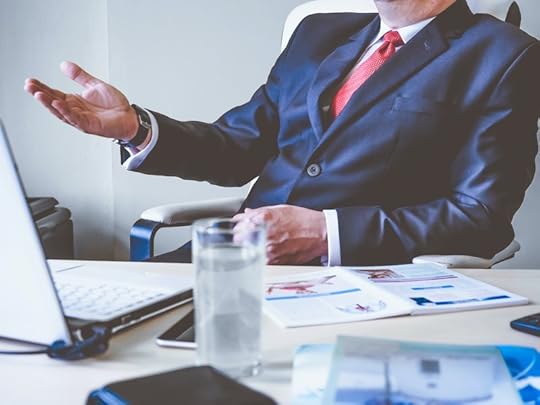 Source: Pexels.comCorporate greed promotes consumerism versus healing
Source: Pexels.comCorporate greed promotes consumerism versus healingThe epidemic of emotional numbing in the face of trauma is supported by all the corporations that profit massively from our habit of consuming food, alcohol, and possessions in order to bury our pain.
But the more we numb ourselves, the more dead we feel, and the more likely it is that we’ll turn to blind consumerism and at the same time, abandon ourselves and one- another. In that way, we add more suffering into the world.
On the other hand, the more we face our trauma, feel our feelings, and get down to the difficult but powerfully transformative work of healing, the more we become adept at engaging in loving self-care and loving-kindness to each-other.
The silver lining of the cloud called trauma is that it can make us better people. It enables us to be kinder to ourselves, to stop doing harm, and to be more attuned to the suffering of others.
 Source: Pexels.comIt’s possible to change ourselves and change our world
Source: Pexels.comIt’s possible to change ourselves and change our worldImagine a world in which people were alive in their emotions, free of addiction and filled with loving-kindness. It seems like an impossible fantasy, but it starts with using trauma as the key to unlock our hearts.
By the simple act of facing, feeling, and healing our emotional pain, we open the door to becoming the best versions of ourselves and to starting to create a better world.
You can listen to my podcast episodes where I discuss these types of feelings with a trauma specialist, Dr. Gabor Maté.
Part 1Part 2Sign up here for my free biweekly wellness newsletter that brings you fresh, thought-provoking content.
Subscribe to my YouTube Channel to watch my series Moving into Autumn with Good Self-Care, where you’ll learn simple tips for taking the best care of yourself and your loved ones this fall season.
Tune in to my Ruthless Compassion Podcast where I go in-depth about topics like mental health, trauma, and loneliness.
if(window.strchfSettings === undefined) window.strchfSettings = {};window.strchfSettings.stats = {url: "https://marciasirotamd.storychief.io/... "The Silver Lining of The Cloud Called Trauma",id: "84fb0907-fb13-4676-8158-d29510e9b589"};(function(d, s, id) {var js, sjs = d.getElementsByTagName(s)[0];if (d.getElementById(id)) {window.strchf.update(); return;}js = d.createElement(s); js.id = id;js.src = "https://d37oebn0w9ir6a.cloudfront.net... = true;sjs.parentNode.insertBefore(js, sjs);}(document, 'script', 'storychief-jssdk'))
The post The Silver Lining of The Cloud Called Trauma appeared first on Marcia Sirota.
The Unintended Consequences of Spreading Hurtful Lies, Online
Recently, I got upset when I read online about the protests at Ontario hospitals, in which people in the crowd were shouting slurs at the medical staff, and calling the doctors and nurses, “murderers.”
This was shocking to me because I know for a fact that the vast majority of doctors and nurses go into their professions out of a profound desire to help and to heal. I also, know first-hand, about all the sacrifices that are made every single day by people in the healing professions, whether from their grueling training, their long hours, or their extremely challenging jobs.
During the pandemic, healthcare professionals have been putting their own and their family’s safety at risk every day and many have died, caring for their patients. These individuals are selfless and heroic, working long hours with no rest to care for their patients. They should be applauded and supported.
To be called “murderers” in the face of these sacrifices is as much an outrage as it is deeply demoralizing. It’s no surprise that so many nurses are now quitting the profession and so many doctors are retiring early.
At the best of times, healthcare professionals have an enormous burden of responsibility, incredibly long work hours, ever-mounting stress, and ever-decreasing respect from the general population. During the pandemic, things have gone from bad to worse with the advent of online and in-person vitriol directed at these profoundly caring individuals. This horrendous situation was exemplified by a story I read the other day.
 Source: Pexels.comDragging a doctor’s reputation through the mud
Source: Pexels.comDragging a doctor’s reputation through the mudIn a small Ontario town of 300, the only family doctor who also happens to serve the surrounding areas with a total caseload of 800 patients, was wrongly accused on Facebook by one of the town counselors. The charge? Refusing care for unvaccinated patients.
In fact, this physician has been treating all her patients throughout the pandemic, seeing unvaccinated patients, caring for patients who had tested positive for Covid-19, and even treating severely ill Covid-19 patients in their homes. She is one of those deeply devoted doctors who spends her weekends doing house-calls and who has consistently gone above and beyond the call of duty to care for her patients.
It is unclear why the councillor chose to make that post on Facebook but after he did it, the doctor—who has gone out of her way to accommodate the unvaccinated members of her community—received an overwhelming outpouring of hate messages online, culminating in two separate complaints to the College of Physicians and Surgeons of Ontario—the governing body for the province’s physicians.
After speaking with the doctor, the College chose not to pursue either of the complaints, but the entire experience has been so traumatic to the doctor that she has decided to retire in March and leave town. In less than three months, 800 people will no longer have a doctor, because one town councillor chose to post a false story online.
 Photographer: Christian Wiediger | Source: UnsplashIt took online hate to make this doctor quit
Photographer: Christian Wiediger | Source: UnsplashIt took online hate to make this doctor quitInstead of being celebrated for her years of sacrifice, dedication, and selfless efforts at healing, this doctor has been literally chased out of town. I’m sure it was the last thing she ever expected. This doctor had practiced medicine in Sudan and in New Guinea, but it took vicious online hatred in small-town Ontario to make her decide to pack it up and quit.
I was thinking about who is going to replace this doctor. There are terrible shortages of general practitioners in small-town Ontario and in many other parts of Canada. Even if it was possible to find a replacement for this one doctor, what physician would want to start working in a community that had treated their previous doctor so horrendously? Who would want to put up a shingle in a place where self-sacrifice, hard work and profound dedication are punished, rather than rewarded?
The city councillor probably had no idea, when he pressed “send” on his Facebook post, that the result of his unthinking actions would be to deprive 800 citizens of the only family doctor for miles around.Come March 31st, 2022, the entire community is going to be without any local primary medical care, all because the councillor didn’t stop to get the correct information and instead, chose to spread false statements on social media – statements that were highly inflammatory and disparaging to the doctor.
 Photographer: John Schnobrich | Source: UnsplashStop and think first about the consequences of your social media posts
Photographer: John Schnobrich | Source: UnsplashStop and think first about the consequences of your social media postsActions have consequences, especially when it comes to social media posts, so it’s always a good idea to stop and think about what might come of our actions, prior to posting anything online. In the case of the city councillor, his Facebook post had very dire unintended consequences, but sadly, that’s not the only social media post that has resulted in surprising and awful outcomes.
We have only to look at the news to see all the terrible results of online lies, bullying, and abuse. The tragedy is that no-one wins, from these abusive posts. The abusers don’t benefit in any real way from hurting their victims; the victims are injured, and there can be a ton of unexpected collateral damage.
The world is a difficult enough place these days and we need more love, not more aggression. I encourage everyone to spread love, not hate, online moving forward. I also strongly encourage you to always, always think about the consequences that might arise from the things you post.
Sign up here for my free biweekly wellness newsletter that brings you fresh, thought-provoking content.
Subscribe to my YouTube Channel to watch my series Moving into Autumn with Good Self-Care, where you’ll learn simple tips for taking the best care of yourself and your loved ones this fall season.
Tune in to my Ruthless Compassion Podcast where I go in-depth about topics like mental health, trauma, and loneliness.
if(window.strchfSettings === undefined) window.strchfSettings = {};window.strchfSettings.stats = {url: "https://marciasirotamd.storychief.io/... "The Unintended Consequences of Spreading Hurtful Lies, Online",id: "84fb0907-fb13-4676-8158-d29510e9b589"};(function(d, s, id) {var js, sjs = d.getElementsByTagName(s)[0];if (d.getElementById(id)) {window.strchf.update(); return;}js = d.createElement(s); js.id = id;js.src = "https://d37oebn0w9ir6a.cloudfront.net... = true;sjs.parentNode.insertBefore(js, sjs);}(document, 'script', 'storychief-jssdk'))
The post The Unintended Consequences of Spreading Hurtful Lies, Online appeared first on Marcia Sirota.
How Will the Omicron Variant Affect Your Holiday Plans?
As the new Omicron variant is starting to show up in Canada and in other parts of the world, some people in Ontario are re-thinking their holiday plans. The Federal government is scrambling to create new travel restrictions, hoping to slow down the spread, and in Quebec, they’ve just posted a daily Covid-19 case count of almost 1200, following the largest one-day jump in the past seven months.
For those of us who worry about such things, it’s starting to get scary again. As the holiday season arrives, families across the province are wondering how to gather, or whether gathering at all is even a good idea.
While we’re still unsure of how infectious and how dangerous this new variant is, it’s really hard to decide what to do. Should we be optimistic and carry on as if everything was status quo, or should we err on the side of caution? And now that travel is becoming that much more complicated, is it worth the risk to buy that ticket to head home for the holidays?
We don’t even know how safe we are against this new variant, even if we’re fully vaccinated. People are booking their booster shots and getting their kids vaccinated, but for many, the anxiety is still high. These have been extremely uncertain times, and just as we were starting to think that life was getting back to more-or-less normal, things seem to have changed from one moment to the next.
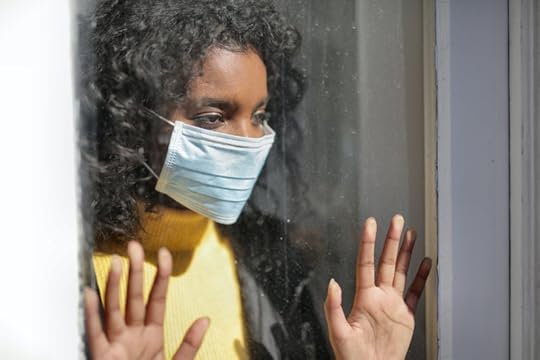 Source: Pexels.comWe’ve been traumatized by the pandemic
Source: Pexels.comWe’ve been traumatized by the pandemicWhat we have to recognize is that many of us have been traumatized by the pandemic. The loss, the fear, the stress, and the social isolation have all come together to play havoc on our emotional equanimity. We’ve developed malaise, adjustment disorders, even full-blown PTSD. And with all stress-related disorders, we’re that much more vulnerable to other stresses.
At the best of times, we all have a certain amount of natural resilience and we’re able to bounce back fairly well from adversity. However, when we’ve been subject to the traumatic stress of a seemingly never-ending pandemic, our resilience becomes that much lower and our ability to cope is impaired.
For this reason, the news of the Omicron variant could be hitting many of us a lot harder than we might have expected. It’s easier than ever to become overwhelmed by the possibilities of everything shutting down again and to start jumping to worst-case scenarios. In our fragile emotional state, the last thing we needed, as the holiday season begins, is to have one more thing to worry about.
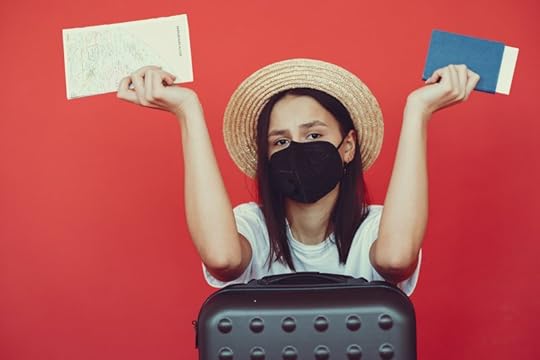 Source: Pexels.comWill people be changing their holiday plans?
Source: Pexels.comWill people be changing their holiday plans?I’m wondering how many people will be changing or even canceling their holiday plans. I’m wondering how many will be going ahead as though nothing has changed – perhaps, to regret it in the coming weeks.
Should we be that much more careful in light of the new variant? Should we double down, insisting on having our family gathering as usual, deciding that we’re willing to tolerate the risks? With so little information available, it’s hard to know if we’re making the right decision.
The holiday season is traditionally a time to relax and unwind, hang out with our loved ones, kick back and enjoy ourselves. With this frightening and mysterious new variant looming, how relaxed are we going to be, and how much will we be willing to risk people’s lives for the sake of our holiday fun?
 Source: Pexels.comWhat to do?
Source: Pexels.comWhat to do?Everyone needs to listen to their own inner wisdom. They need to trust themselves to know what level of risk they’re comfortable with and what they’re not comfortable with.
Most importantly, we shouldn’t feel guilty about taking care of ourselves. Other people might try to pressure us into doing things that we don’t want to do, and we should feel entitled to say “no” whenever we need to.
We also need to be kind to our loved ones, and not make them feel bad if they are saying “no” to us. We all need to respect one-another and allow everyone to do what’s right for them.
As things become clearer in the days to come, I suppose that everyone will be finalizing, changing, or perhaps canceling, their holiday plans. And everyone needs to have tolerance and understanding around the choices they and their loved ones are making.
I hope that all of you remember to stay safe, keep your loved ones and also keep members of your community safe. And please, make sure to factor in your emotional well-being during this awfully strange holiday season.
Sign up here for my free biweekly wellness newsletter that brings you fresh, thought-provoking content.
Subscribe to my YouTube Channel to watch my series Moving into Autumn with Good Self-Care, where you’ll learn simple tips for taking the best care of yourself and your loved ones this fall season.
Tune in to my Ruthless Compassion Podcast where I go in-depth about topics like mental health, trauma, and loneliness.
if(window.strchfSettings === undefined) window.strchfSettings = {};window.strchfSettings.stats = {url: "https://marciasirotamd.storychief.io/... "How Will the Omicron Variant Affect Your Holiday Plans?",id: "84fb0907-fb13-4676-8158-d29510e9b589"};(function(d, s, id) {var js, sjs = d.getElementsByTagName(s)[0];if (d.getElementById(id)) {window.strchf.update(); return;}js = d.createElement(s); js.id = id;js.src = "https://d37oebn0w9ir6a.cloudfront.net... = true;sjs.parentNode.insertBefore(js, sjs);}(document, 'script', 'storychief-jssdk'))
The post How Will the Omicron Variant Affect Your Holiday Plans? appeared first on Marcia Sirota.
November 22, 2021
Introverts and Extroverts Need Tools to Recover From the Trauma of Social Isolation
I’ve noticed that the pandemic has affected different types of people in very different ways. In particular, how after many months of social isolation, introverts and extroverts demonstrate suffering and recovery in their own unique ways.
Before I go any further, let me explain the difference between extroverts and introverts. Extroverts need to spend a good amount of time with other people. For them, being social is energizing and uplifting.
When an extrovert feels tired or down, they turn to their loved ones in order to recharge their batteries. Extroverts also enjoy their alone time. For an extrovert, too much alone time becomes painful and demoralizing.
Introverts are people who need to spend a good amount of time on their own. For them, excessive socializing can be draining and exhausting. When introverts feel tired or down, they take time alone to recharge their batteries.
Introverts enjoy the company of other people and they’re just as capable of forming close, meaningful relationships as extroverts. It’s just that they need more solitude than extroverts do. A lot more.
Pre-pandemic, both extroverts and introverts were able to achieve a balance of time alone and being social. Once Covid-19 hit, all that changed. Everyone had to contend with months on end of isolation which has affected the introverts and the extroverts quite differently.
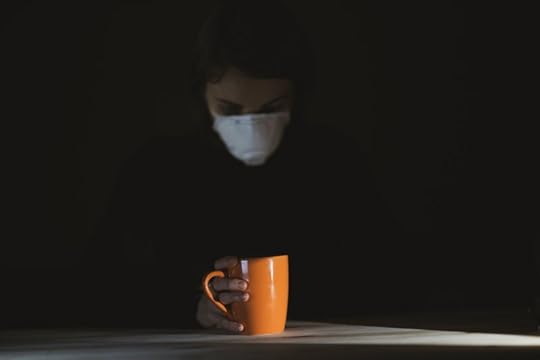 Source: Pexels.comExcessive time alone causes introverts to be more withdrawn
Source: Pexels.comExcessive time alone causes introverts to be more withdrawnI’ve observed that since the pandemic, many introverts have withdrawn more than ever. One reason is that they got so habituated to being alone that they stopped craving human companionship.
Also, for the average introvert, being social is somewhat more challenging than for the average extrovert. All the months of imposed isolation have caused many introverts to lose their social moxie, A.K.A. their social know-how.
It’s like someone who had a serious illness and had to lie in bed for many months without getting up. Their leg muscles would atrophy, and when they were finally allowed to get up, they’d be too weak to walk. They’d have to build up their muscles in order to start walking again.
Getting so used to being alone and losing some of their social skills could result in the introvert not wanting to bother reaching out to others. They could remain alone and of course, the longer they’re alone, the harder it becomes to start connecting with other people again.
Extroverts suffered a lot during the pandemic. Aside from all the other losses, social isolation was almost physically painful to them. For those who followed all the public health guidelines and maintained appropriate social distance, the nearly two years of being around so few people were agonizing.
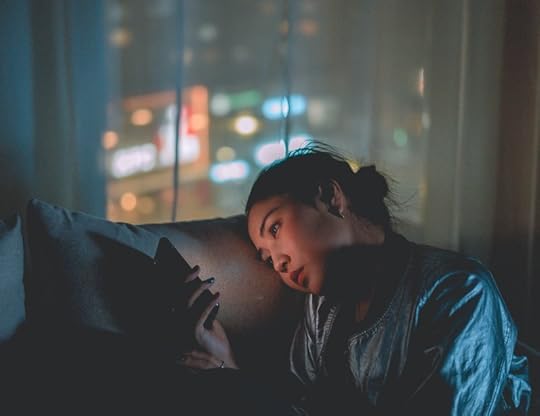 Source: Pexels.comExtroverts are traumatized by social isolation
Source: Pexels.comExtroverts are traumatized by social isolationThey might not realize it but these extroverted individuals were traumatized by all the aloneness. They’re carrying unacknowledged loss, grief, and pain and without realizing it; they’re bringing this emotional baggage from the pandemic into their interactions.
Think of soldiers coming home after experiencing the horrors of war. Even if they haven’t been physically wounded, many are left with PTSD and it starts to affect their behaviour once they’re back at home. It’s similar for extroverts who’ve been through the pandemic.
There’s a psychological phenomenon called “leaking.” When we have unrecognized emotional wounds, we can’t be in touch with our feelings of pain, grief, or hurt. These feelings build up inside us, and like all emotions, they need to be released.
When we’re not expressing these emotions consciously and deliberately, they end up leaking into our day-to-day interactions. What this looks like is someone who’s more irritable, agitated, impatient, weepy, or jumpy. Or they could be less tolerant, understanding, or empathetic.
The leakage will often upset and confuse the people in the extrovert’s social life and could cause them to withdraw, leaving the extrovert alone again. This will further traumatize the extrovert and likely result in more leakage of emotions, creating an unfortunate vicious circle.
 Source: Pexels.comFortunately, there are solutions. Here are my simple tips for social recovery, post-pandemic.For the introverts:
Source: Pexels.comFortunately, there are solutions. Here are my simple tips for social recovery, post-pandemic.For the introverts:Self-discipline: Introverts need to push themselves to start reaching out to others, even if it’s hard to do. They can start with things that are easier, like sending an email or a text, then progress to phone calls and face-to-face online interactions. Finally, they can agree to meet in a safe manner with one close friend or family member and spend some in-person time together.
Self-compassion: Introvert needs to be compassionate with themselves, and not be self-critical if their social skills have backslid a bit. They can remind themselves that the more they practice socializing, the more they’ll get the hang of it and soon enough, they won’t need to force themselves because it will once again be enjoyable to spend time with other people.
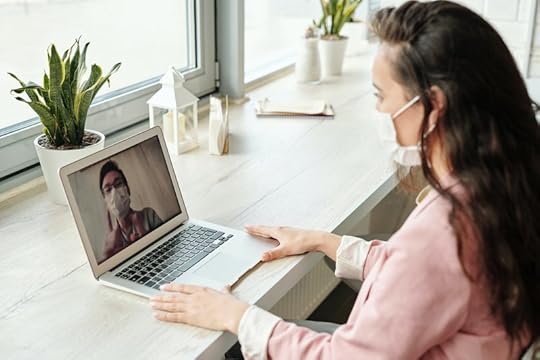 Source: Pexels.comFor the extroverts:
Source: Pexels.comFor the extroverts:Self-reflection: Extroverts need to take time to get in touch with the feelings that have arisen within them as a result of all the social isolation and resultant loneliness. They’ll need to do some “inner work,” processing their hurt, grief, and pain. They’ll need to deal with the emotions so that they don’t start leaking when they’re interacting with other people.
Clear communication: They need to talk to the people in their life and explain how hard it has been for them and that they’re not quite themselves these days. By communicating with others, the extroverts ensure that the people around them will be more understanding if there’s any inadvertent leakage and as a result, no-one will be pulling away.
 Source: Pexels.comUnderstanding facilitates healing
Source: Pexels.comUnderstanding facilitates healingBoth extroverts and introverts have suffered differently as a result of the Covid-19 pandemic. Because of this, their paths to recovery are also different. Understanding these differences and identifying which group you belong to will help you to recover more quickly and more fully from any negative psychological impact of the past several months in social isolation.
Sign up here for my free biweekly wellness newsletter that brings you fresh, thought-provoking content.
Subscribe to my YouTube Channel to watch my series Moving into Autumn with Good Self-Care, where you’ll learn simple tips for taking the best care of yourself and your loved ones this fall season.
Tune in to my Ruthless Compassion Podcast where I go in-depth about topics like mental health, trauma, and loneliness.
if(window.strchfSettings === undefined) window.strchfSettings = {};window.strchfSettings.stats = {url: "https://marciasirotamd.storychief.io/... "Introverts and Extroverts Need Tools to Recover From the Trauma of Social Isolation",id: "84fb0907-fb13-4676-8158-d29510e9b589"};(function(d, s, id) {var js, sjs = d.getElementsByTagName(s)[0];if (d.getElementById(id)) {window.strchf.update(); return;}js = d.createElement(s); js.id = id;js.src = "https://d37oebn0w9ir6a.cloudfront.net... = true;sjs.parentNode.insertBefore(js, sjs);}(document, 'script', 'storychief-jssdk'))
The post Introverts and Extroverts Need Tools to Recover From the Trauma of Social Isolation appeared first on Marcia Sirota.
November 18, 2021
The Dangers of Shutting Down Our Emotions in The Face of Trauma
I interviewed Dr. Jennifer Fraser, author of The Bullied Brain: Heal Your Scars and Restore Your Health for one of my podcast episodes (releasing in the new year), and she mentioned how trauma affects the brain. She said that people can shut down their emotions in order to protect themselves from their pain, but that this defense mechanism has unintended consequences.
There are a few things that can happen when we shut down emotionally. One is that we are so numb that we allow ourselves to be in bad, even dangerous situations. We’re so cut off from our emotions that we don’t realize we’re being hurt and that we shouldn’t be there.
Another thing that happens when we shut down emotionally is that we lose our empathy. If the definition of empathy is “feeling into” another person’s emotional experience, being cut off from our own emotions makes it impossible to have a sense of anyone else’s.
A third thing that can happen when we shut down our emotions is that they can push back from the inside. This can take the form of anger and aggression. A lot of people who are walking around in a rage are actually people who have pushed down their feelings because of trauma, to the point where the only thing they are capable of feeling is rage.
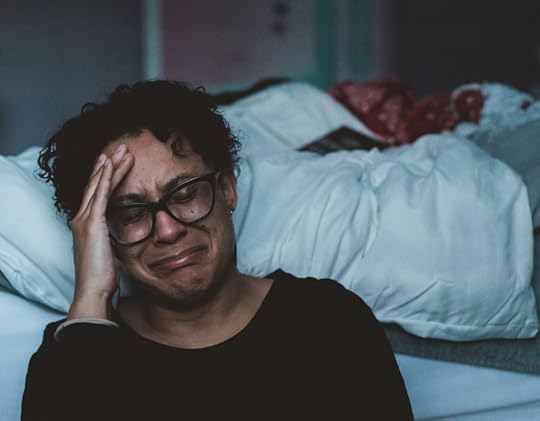 Photographer: Claudia Wolff | Source: UnsplashConsequences to shutting down emotions in the face of trauma:
Photographer: Claudia Wolff | Source: UnsplashConsequences to shutting down emotions in the face of trauma:So, what happens when we push down our emotions? Those who are numb end up being hurt over and over again. If they automatically shut down emotionally after every hurt, they are doomed to a perpetual cycle of numbness, damage, and further numbness.
Those who lack empathy are capable of witnessing all sorts of terrible abuse toward others and feel nothing. Because they aren’t moved by the abuses they see, they have no motivation to do anything to make the situation better. These people are capable of turning a blind eye to abuse and even enabling the abuses that are happening right under their noses.
Another thing to understand about those who are lacking in empathy is that they are extremely threatened by vulnerability. If they encounter a victim of abuse, it scares them because there’s a risk that they might identify with the victim, and possibly start to feel their own buried pain.
This is unacceptable to them, as they are unconsciously driven to suppress their pain. They harbor an unconscious belief that they wouldn’t be able to tolerate their pain. This belief grows stronger the more they suppress their feelings. They are so terrified that the victim of abuse might remind them of their own unacknowledged trauma and pain, that they become angry at the victim for making them feel so uncomfortable.
 Source: Pexels.comEnablers of abuse might have been victims of trauma themselves:
Source: Pexels.comEnablers of abuse might have been victims of trauma themselves:At the same time, the person lacking in empathy will see the abuser as someone to idealize. They would rather identify with the person in the position of power because this makes them feel less vulnerable and less afraid. They admire the abuser for the power they wield and, because they lack empathy, it’s easy for them to focus on who has and doesn’t have the power, rather than who is doing the hurting and who is being hurt.
This results in the unempathetic person abandoning the victim and protecting the abuser. They will enable the abuser to keep abusing because the abuser is admirable in how much power they have. Their lack of empathy makes them disregard how much harm the abuser is causing, and makes them unable to care about the damage being caused to the victim.
The result is that abuse can go on for a long time, and the person lacking empathy will be insistent in ignoring it, enabling it, and in abandoning the victim. This causes even more harm to the victim because they are being victimized twice: once by their abuser and once by the person or persons who are enabling the abuse and ignoring their pain.
 Source: Pexels.comVictims of trauma can become the abusers of the next generation:
Source: Pexels.comVictims of trauma can become the abusers of the next generation:The third type of response to trauma is to be angry and aggressive. These people become the abusers of the next generation. Human beings are drawn to the familiar. If violence or abuse is what’s familiar to these individuals and if rage is all that they can feel, then it stands to reason that they will express their rage through acts of abuse or violence.
These people are so emotionally shut down that they can’t feel any empathy for their victims or any remorse for their hurtful actions. They continue to cause harm because they are operating under the false belief that they will finally feel better if they just take out “enough” rage on their victims.
Unfortunately for the perpetrators—as well as for their victims—this isn’t the way to find peace or healing, and the cycle of violence persists, with the abuser wrongly believing that eventually, enough violence will do the trick and they’ll be healed.
 Source: Pexels.comBeing disconnected from our emotions makes us disconnected from others:
Source: Pexels.comBeing disconnected from our emotions makes us disconnected from others:We should also be aware that the numbness, lack of empathy, and anger that these traumatized individuals are experiencing have had other effects on their lives. These individuals are often incapable of intimacy. Being disconnected from their emotions means being disconnected from others.
Because they have suppressed their emotions, their relationships are shallow, superficial, and oftentimes, they see themselves and/or the other person as a commodity. “Love” is about what they can give and take as opposed to the joy of connection. Their relationships are transactional as opposed to loving and meaningful.
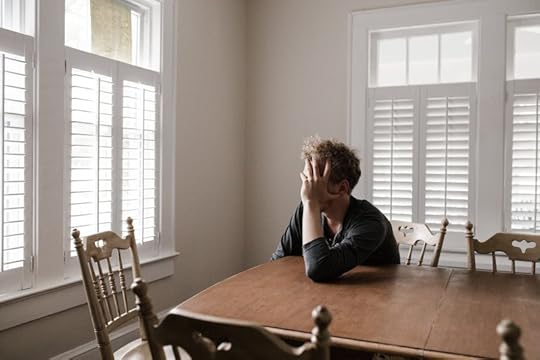 Source: Pexels.comShutting down emotionally makes it impossible to feel compassion:
Source: Pexels.comShutting down emotionally makes it impossible to feel compassion:These individuals are often incapable of feeling compassion. Emotional repression makes it impossible to care so deeply about others, that they’re compelled to act on their behalf. These individuals are unmoved by the plight of their neighbours, their community, their animals, the environment, and the world. They sit by when terrible things are happening to those around them, or when the planet is in crisis. They don’t have enough emotional capacity to care.
Another consequence of being emotionally shut down is that people don’t care about their own health. They eat junk food because it feels good and because they mistake superficial pleasure for fulfillment. They don’t worry about the health consequences of their bad eating habits because they’re so out of touch with their feelings, they can’t manage to care enough about their health. This results in no changes to their eating behaviours.
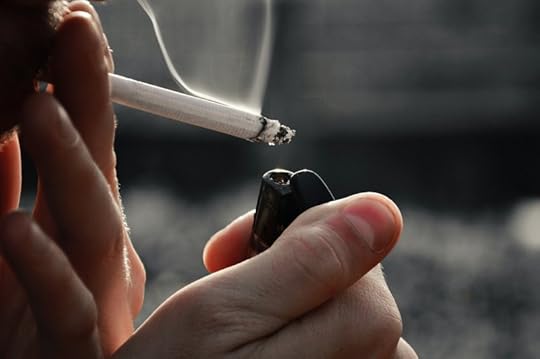 Source: Pexels.comEmotional repression due to trauma leads to self-abandonment:
Source: Pexels.comEmotional repression due to trauma leads to self-abandonment:They consume alcohol and drugs because they need to feel something, even if it’s through intoxication. They engage in self-harming behaviours in order to experience some type of sensation, even if it’s physical pain. For the same reason, they engage in high-risk behaviours to substitute the satisfaction of being in touch with their genuine emotions for the thrill of adventure.
Being out of touch from our emotions is like missing a sense, but these individuals are incapacitated much more than someone who is hearing or visually impaired because there is no other sense to take over when they shut down emotionally. These individuals are left not knowing how to take care of themselves.
In my psychotherapy practice, I have a little mantra that I teach all my patients. It goes: When you’re in touch with your feelings, you’ll know what you need, and when you know what you need, you can take the right action to get it.
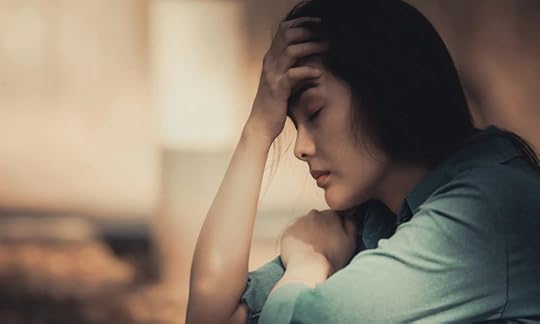 Source: Pexels.comEmotional disconnection due to trauma leads to a lack of inner peace:
Source: Pexels.comEmotional disconnection due to trauma leads to a lack of inner peace:The problem is that when an individual is out of touch with their emotions, they can’t ever know what they need. They think they know what they need, and they pursue all the dysfunctional behaviours I listed above, but that isn’t actually what they need. Because they are so disconnected from their emotions, they can never pursue what they really need and they’re doomed to never find happiness or inner peace.
The answer to this terrible problem is simple, if not easy; people need to tune into their feelings and identify if they have any dysfunctional coping strategies. If so, they need to look at whether they’ve been shutting down their emotions. If they learn that they have, they need to look into their past, to discover whatever trauma they have buried, and start unpacking it in order to heal it directly.
Often, they will need to do this through psychotherapy, because after years of emotional suppression and the consequent numbness, and/or lack of empathy, and/or rage, it can be extremely anxiety-provoking to face their feelings and too terrifying to look at their trauma.
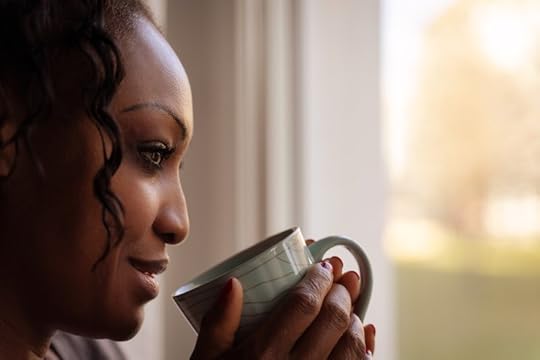 Source: Pexels.comWith courage and willingness, healing from trauma is possible:
Source: Pexels.comWith courage and willingness, healing from trauma is possible:It can be done with some willingness, courage, and the help of caring experienced professionals. Not only can victims of trauma find their own healing, but they can prevent all the collateral damage caused by shutting down emotionally in the face of their own pain.
Sign up here for my free biweekly wellness newsletter that brings you fresh, thought-provoking content.
Subscribe to my YouTube Channel to watch my series Moving into Autumn with Good Self-Care, where you’ll learn simple tips for taking the best care of yourself and your loved ones this fall season.
Tune in to my Ruthless Compassion Podcast where I go in-depth about topics like mental health, trauma, and loneliness.
if(window.strchfSettings === undefined) window.strchfSettings = {};window.strchfSettings.stats = {url: "https://marciasirotamd.storychief.io/... "The Dangers of Shutting Down Our Emotions in The Face of Trauma",id: "84fb0907-fb13-4676-8158-d29510e9b589"};(function(d, s, id) {var js, sjs = d.getElementsByTagName(s)[0];if (d.getElementById(id)) {window.strchf.update(); return;}js = d.createElement(s); js.id = id;js.src = "https://d37oebn0w9ir6a.cloudfront.net... = true;sjs.parentNode.insertBefore(js, sjs);}(document, 'script', 'storychief-jssdk'))
The post The Dangers of Shutting Down Our Emotions in The Face of Trauma appeared first on Marcia Sirota.
Marcia Sirota's Blog
- Marcia Sirota's profile
- 1 follower



